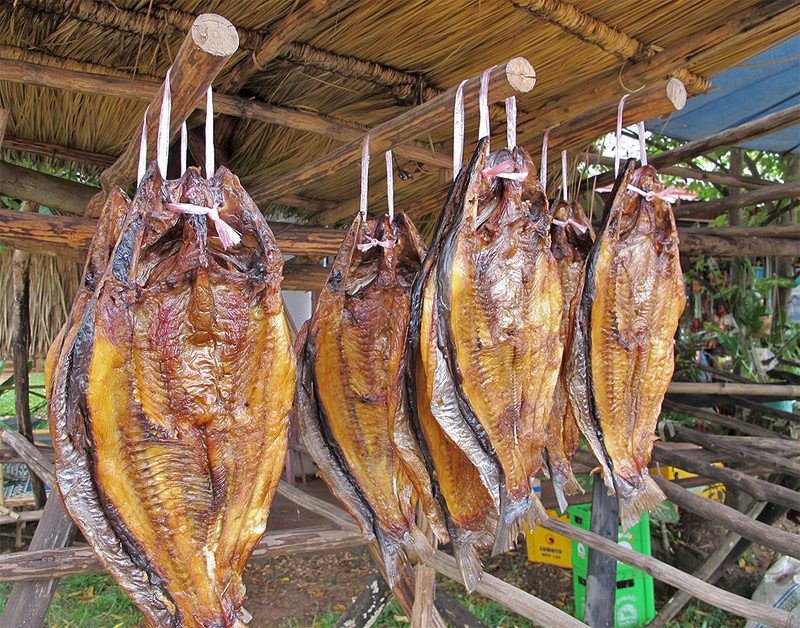Monday August 15, 2011

What do you do when the availability of your main food source changes substantially throughout the year? And you don’t have much access to refrigeration? You smoke it! That is one essential way that villagers in the Mekong Basin use to save surplus fish so they have some protein in times of low catches. This smoked fish was photographed by FISHBIO’s Conservation Director on the side of the road, on Highway 13, in central Lao PDR, between the capital of Vientiane and our research sites to the East near the Nam Kading National Protected Area. The Mekong region has pronounced wet and dry seasons, which drive large migrations of fish and cause the catches to vary a great deal throughout the year. There are many ways that the residents of the Mekong Basin have devised to store fish for lean times. In addition to smoking, they use drying, pickling, fermenting, and make fish sauce. Fish is the main source of animal protein for most villagers. As we collect data on household food consumption, we find that there are times of the year when the fishing catch is so low that some families are eating just rice and bamboo, while at other times the majority of their diet is fish. See earlier post, Fish-kabob, on preliminary results of diet composition data. For this reason, preserving this source of protein is important for ensuring access to essential nutrition. While the large change in river flows between wet and dry seasons may make it challenging for humans to live in this system, this variability itself is likely an important reason why the Mekong hosts the largest freshwater fishing catch in the world.
